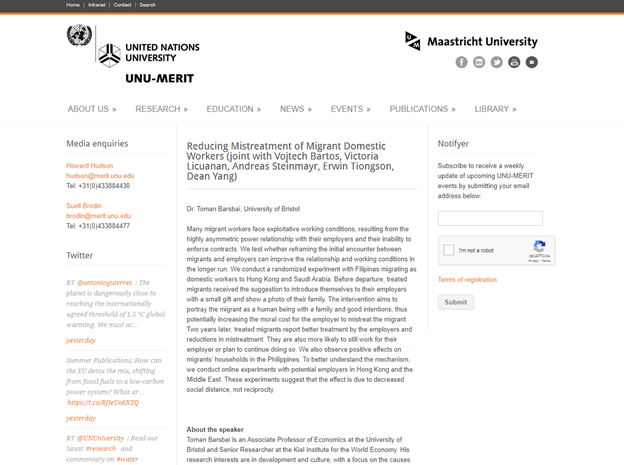Events
Reducing Mistreatment of Migrant Domestic Workers (joint with Vojtech Bartos, Victoria Licuanan, Andreas Steinmayr, Erwin Tiongson, Dean Yang)
Abstract
Many migrant workers face exploitative working conditions, resulting from the highly asymmetric power relationship with their employers and their inability to enforce contracts. We test whether reframing the initial encounter between migrants and employers can improve the relationship and working conditions in the longer run. We conduct a randomized experiment with Filipinas migrating as domestic workers to Hong Kong and Saudi Arabia. Before departure, treated migrants received the suggestion to introduce themselves to their employers with a small gift and show a photo of their family. The intervention aims to portray the migrant as a human being with a family and good intentions, thus potentially increasing the moral cost for the employer to mistreat the migrant. Two years later, treated migrants report better treatment by the employers and reductions in mistreatment. They are also more likely to still work for their employer or plan to continue doing so. We also observe positive effects on migrants’ households in the Philippines. To better understand the mechanism, we conduct online experiments with potential employers in Hong Kong and the Middle East. These experiments suggest that the effect is due to decreased social distance, not reciprocity.
About the speaker
Toman Barsbai is an Associate Professor of Economics at the University of Bristol and Senior Researcher at the Kiel Institute for the World Economy. His research interests are in development and culture, with a focus on the causes and consequences of international migration and the origins and economic implications of preferences and behavior around the world.
